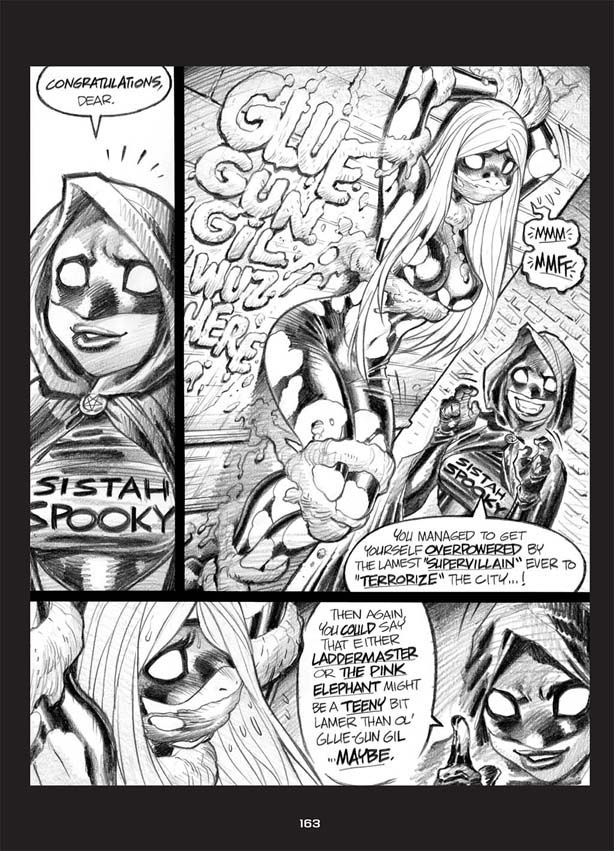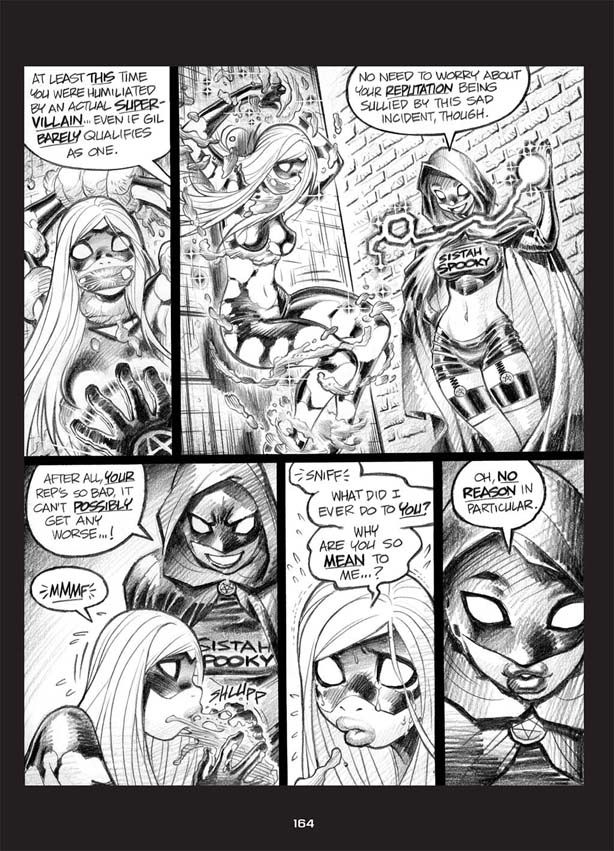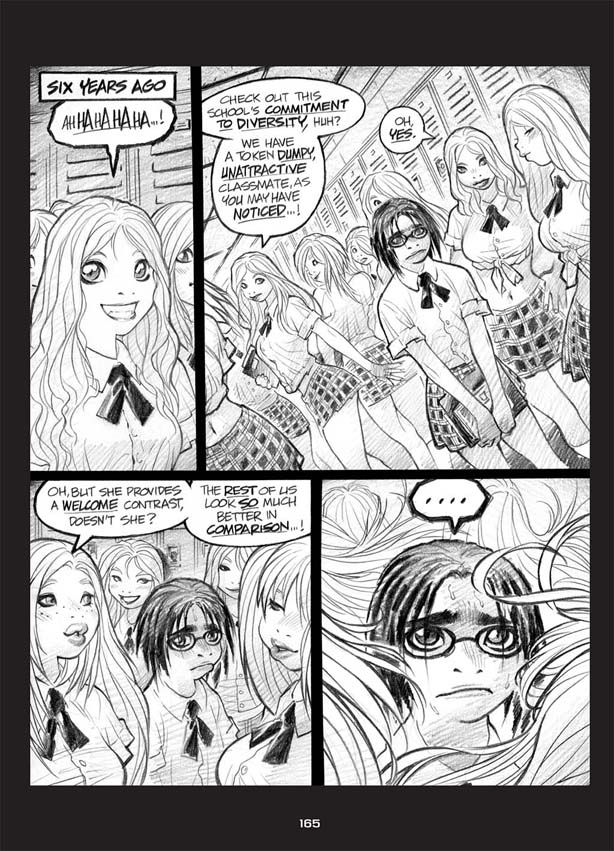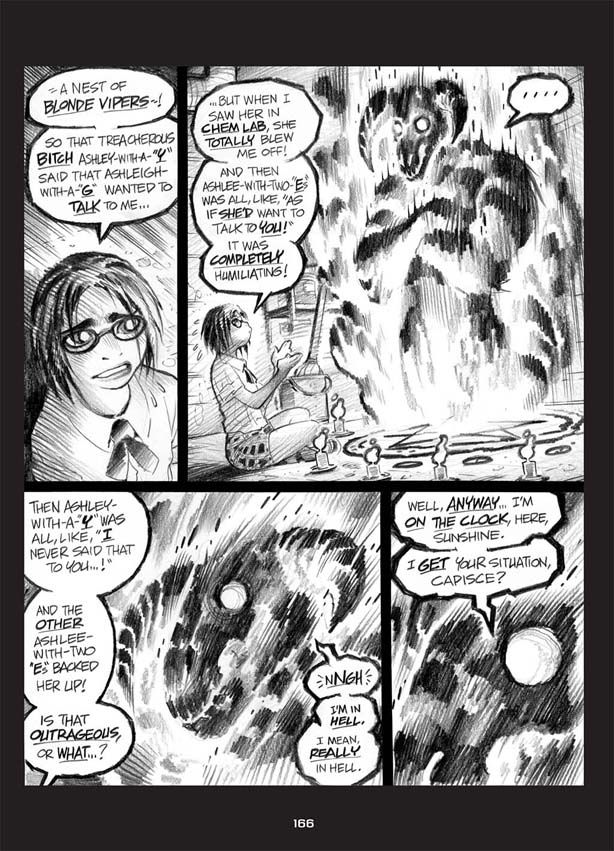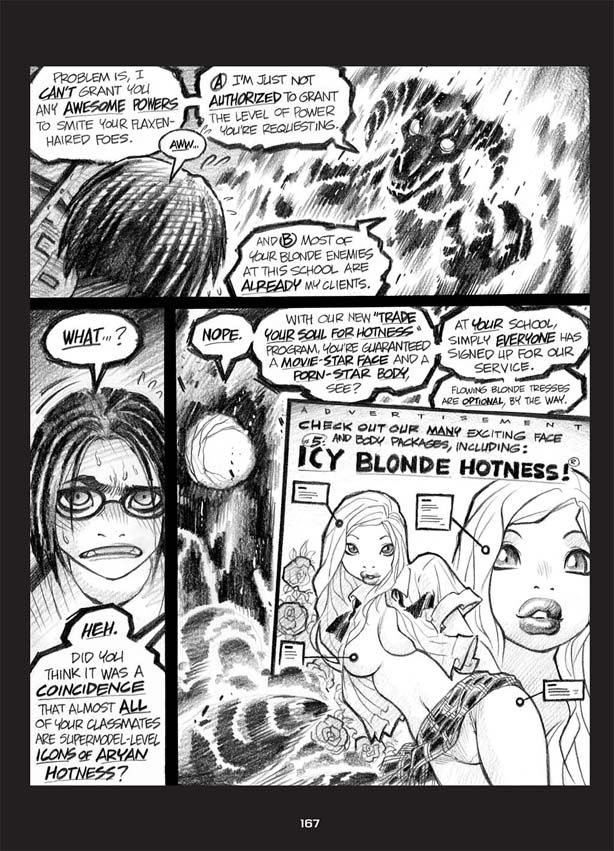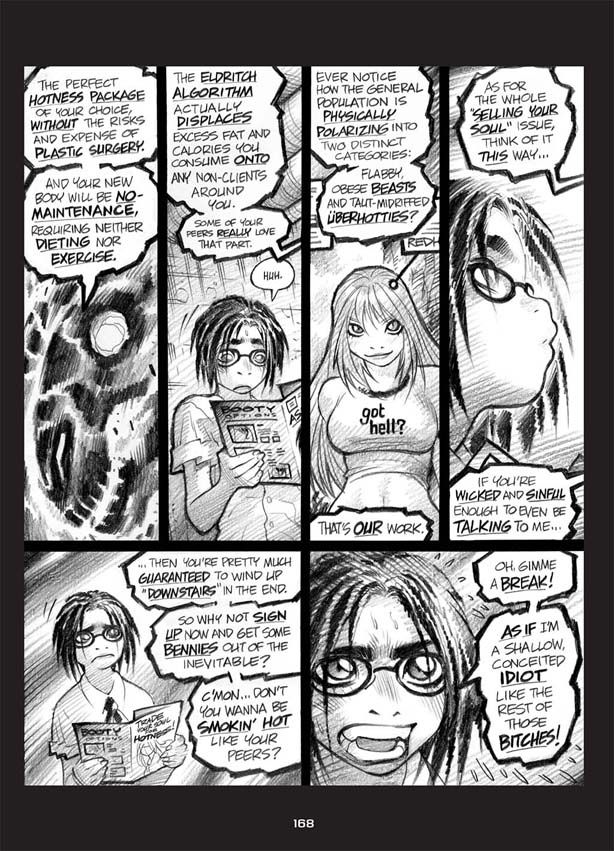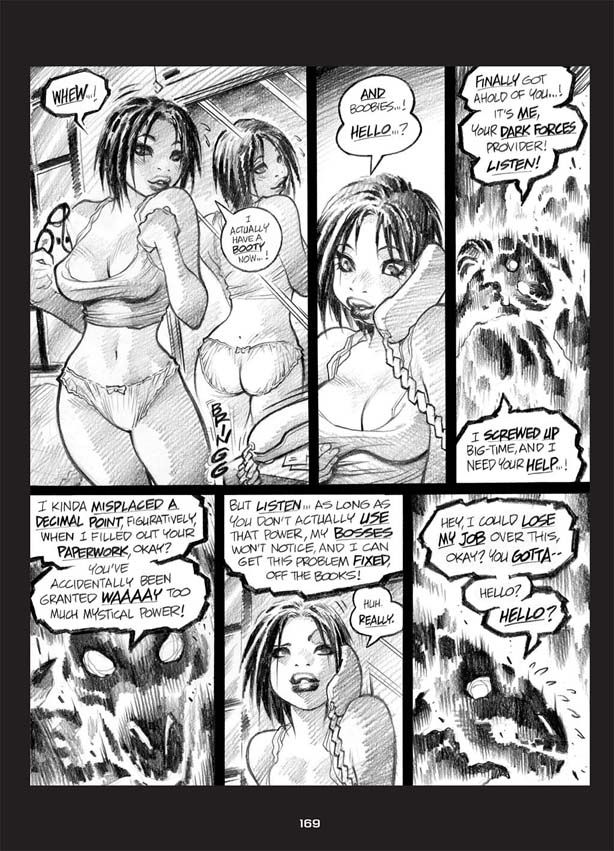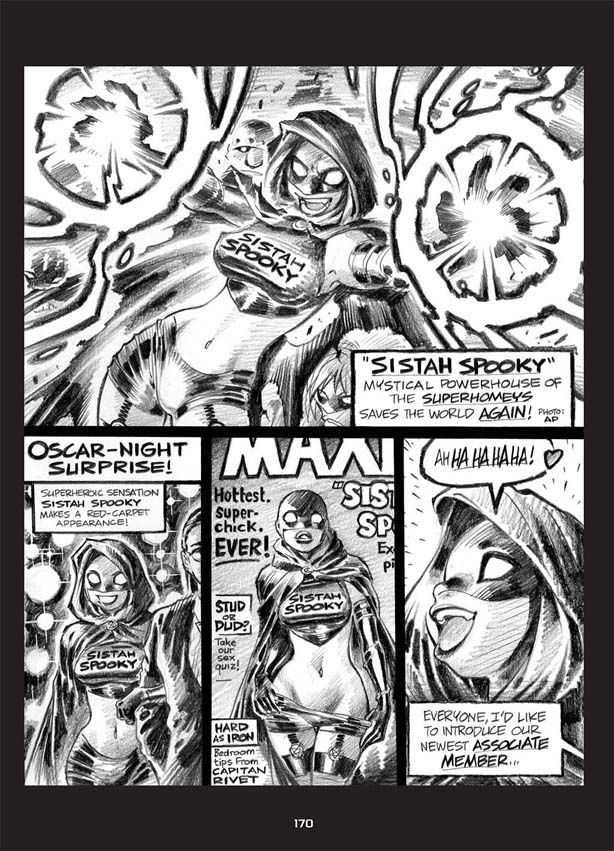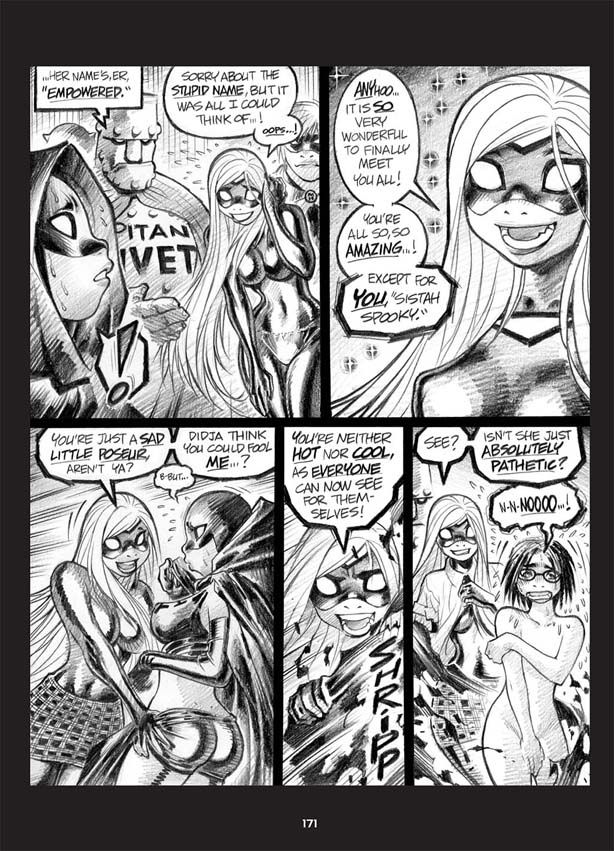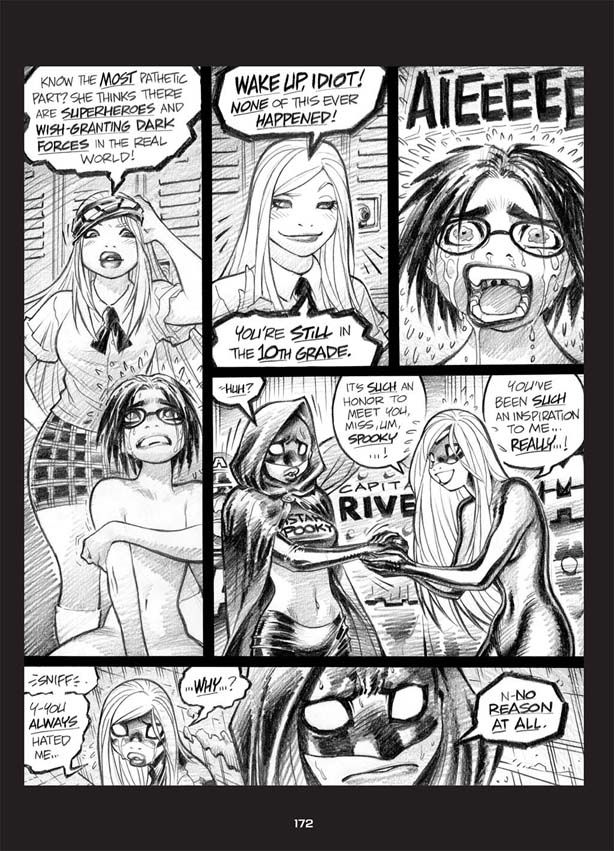Editor's note: In honor of Black History Month, David Brothers took "every day in February to talk about specific aspect of black culture and comic books. It’s mainly focused on superhero comics, since that’s what I grew up reading and still makes up the bulk of my reading material." The series ran through yesterday over at the 4thletter!, and David was gracious enough to let us repost some of them each Saturday in February. The one reprinted below appeared on the 4thletter on Feb. 22.
by David Brothers
I really like Adam Warren's Empowered. I've been a fan of his since Gen13, and Empowered, though pretty pervy, is one of the best superhero comics out. I can't get enough of it. Though the art would make you think that it's a T&A-focused title, and that isn't necessarily untrue, the book has the kind of character work and evolution you don't usually see in mainstream books. There's no chance of a character suddenly reverting to a personality from decades ago because it's Warren's own work. You end up with well-rounded characters who can go through surprising changes.
One of the more interesting characters in the book is Sistah Spooky. She's a black member of the Superhomeys, which is basically the premier super-team of the Empowered universe. Empowered is her rival, for lack of a better word. Here's a few pages that basically explain their relationship. Scans mildly NSFW.
This thing that's afflicting Spooky is something that I think affects all black people on a certain level. For years, though things have changed to an extent now, white was the default race in pop culture. Cartoons starred almost exclusively white people, and what black people existed were either sidekicks or garbage (Black Vulcan). TV and movies showed white people as the main characters, even if they lived in the middle of New York City. You never see anyone like you in a position of positivity.
This sets up a series of domino effects. If all you see are white heroes, white women presented as beautiful, white people as upstanding members of society, and very few black people of substance, it associates the idea of "white is right" in your head. This ties into the trend of black guys getting rich and going for white girls, black girls who hate their hair and their skin, and bias against people lighter or darker than you are. I'm always surprised when non-blacks tell me they didn't know about intra-race racism. The darker you are, the further from white you are, the less good you are.
I find this video fascinating, and it helps illustrate my point very well:
If you want to see the full video (yes, you do, even if you think you don't want to) you need to click this link and spend 7:15 on Youtube 4:50 is heartbreaking.
And I mean, that's the long and short of it. It isn't anything malicious. There aren't evil marketers out there wearing Klan robes and planning on turning a little black girl into a roiling ball of self-hatred and no self-esteem. It's how things have shaken out. It's the saddest thing in the world. It's that first couple verses of Saul Williams's Black Stacey.
I remember being a kid (and this is something that I'm ashamed of and disappointed in myself for now) and being very uncomfortable in my own skin. I'd go to sleep daydreaming about having hair like Zach Morris or the other white guys on TV or in comics. When they'd jump or flip their hair would bounce. My hair didn't even do that after I got dreads. It was too nappy, too thick, and too black. Even trying to dye my hair is an ordeal.
Ever heard of somebody who "got that good hair?"
Nowadays, I hate that I felt that way. It's so stupid and ignorant and juvenile, but I didn't know any better. I just knew what was cool and handsome and wanted to be like that. I realize now that I'd bought into something I shouldn't have. It was self-hate, and it's disgusting, but I was a child. Children learn quickly and absorb knowledge like sponges. I didn't know why I had those feelings, but I knew that I had them. It burned.
If I had to pin a name on it, it's an implanted inferiority complex. These implications are never stated outright, but they build up inside your brain like cholesterol. This kind of thing can ruin a person without them even realizing it. Even recognizing it can, rather than opening your eyes, smother you in bitterness. It's really an amazing trap. Not recognizing it can destroy what you could have been, and recognizing it can do the exact same thing.
It's what Sistah Spooky fell prey to above.
Cheryl Lynn of Digital Femme is a big fan of Empowered. When I mentioned that I was writing about Spooky, she hit me with a few comments that I wanted to address here.
But what's so sad about [Sistah Spooky] is that she never had to make a deal with the devil. She would have been hot anyway. When she loses her powers and reverts in the last Empowered volume, none of the bystanders make any mention of ugliness, they only mention how young she is. She would have likely grown up to be that same beauty, she just couldn't see her own potential, which is a running theme in the book, actually.
Cheryl says it better than I can. Sistah Spooky, and everyone else who has fallen prey to this kind of self-hatred, had no idea of her own potential. But, because she'd lived a lifetime of seeing bottle blondes held up as the only standard of beauty, that idea had set inside her mind. She was blind.
And that's what makes this self-hatred thing so terrible. It makes you blind to your own worth and potential. How are you supposed to even suspect that you're beautiful when every standard of beauty around you says the opposite? You don't even get a chance.
Again from Cheryl:
What's really interesting is that SS could have easily made herself white and blonde. She could have taken the Lil' Kim route and didn't. Why not?
I have an idea, though it's half-conjecture and half-wish fulfillment. I figure that going the full Lil' Kim route is giving up completely. It's taking what Spooky was and could have been and throwing it into the trash. By keeping herself black, Spooky was making a statement. If the world were fair and everyone was on an even keel, she could be just as pretty as the rest. While taking the deal, she's giving in, but she isn't giving up, if that makes any sense at all. She made a concession, but she drew a line in the sand and said "no further."
I'd like to think that it was her subconscious telling her that to go further than she did would be committing a great sin against herself. Like I said... conjecture.
This sort of implanted self-hate is one of the reasons why I care so much about seeing black faces in comics. How are you supposed to shake this off you if you never know about an alternative?
*****
You can find all of David's posts on Black History Month at the 4thletter.


